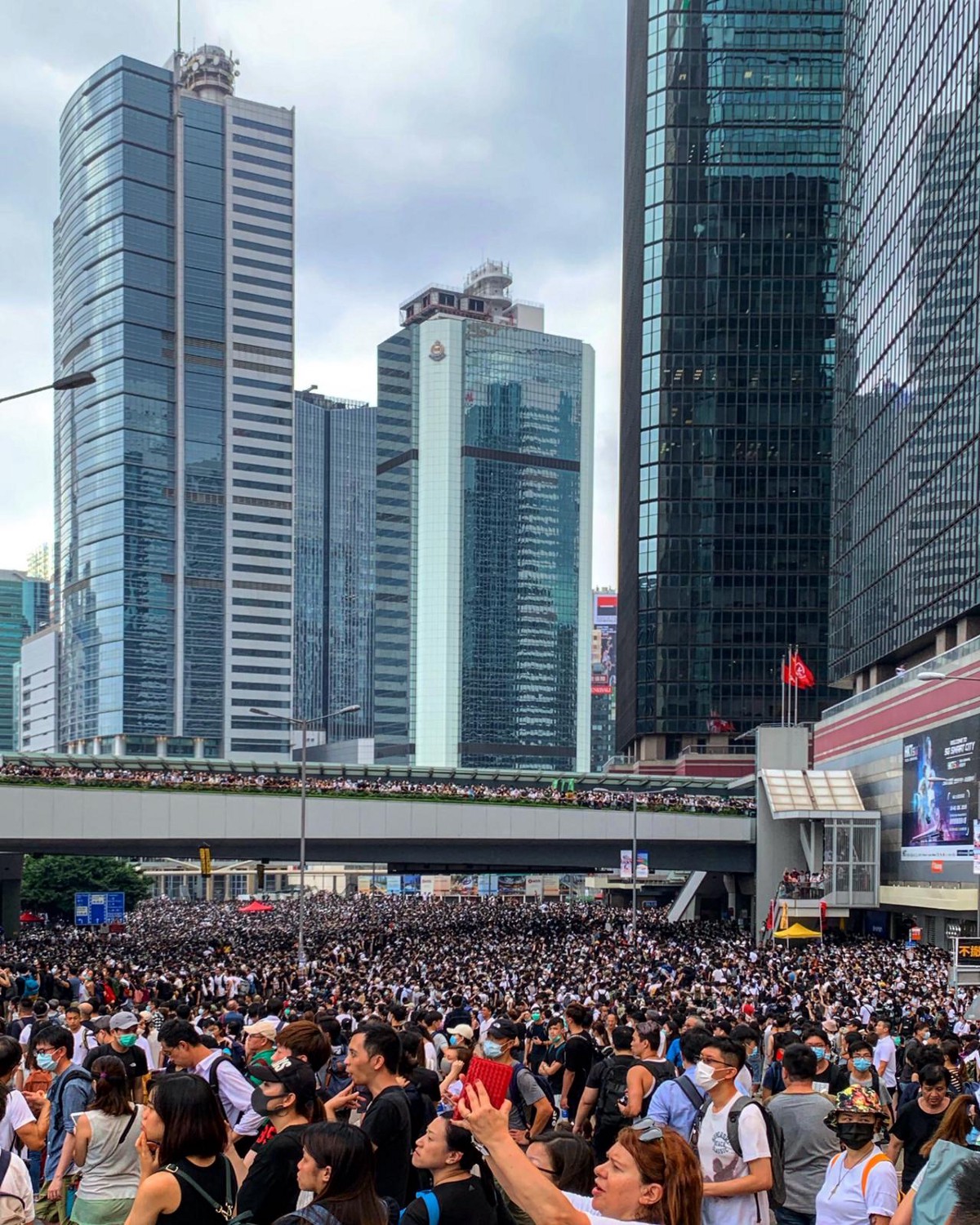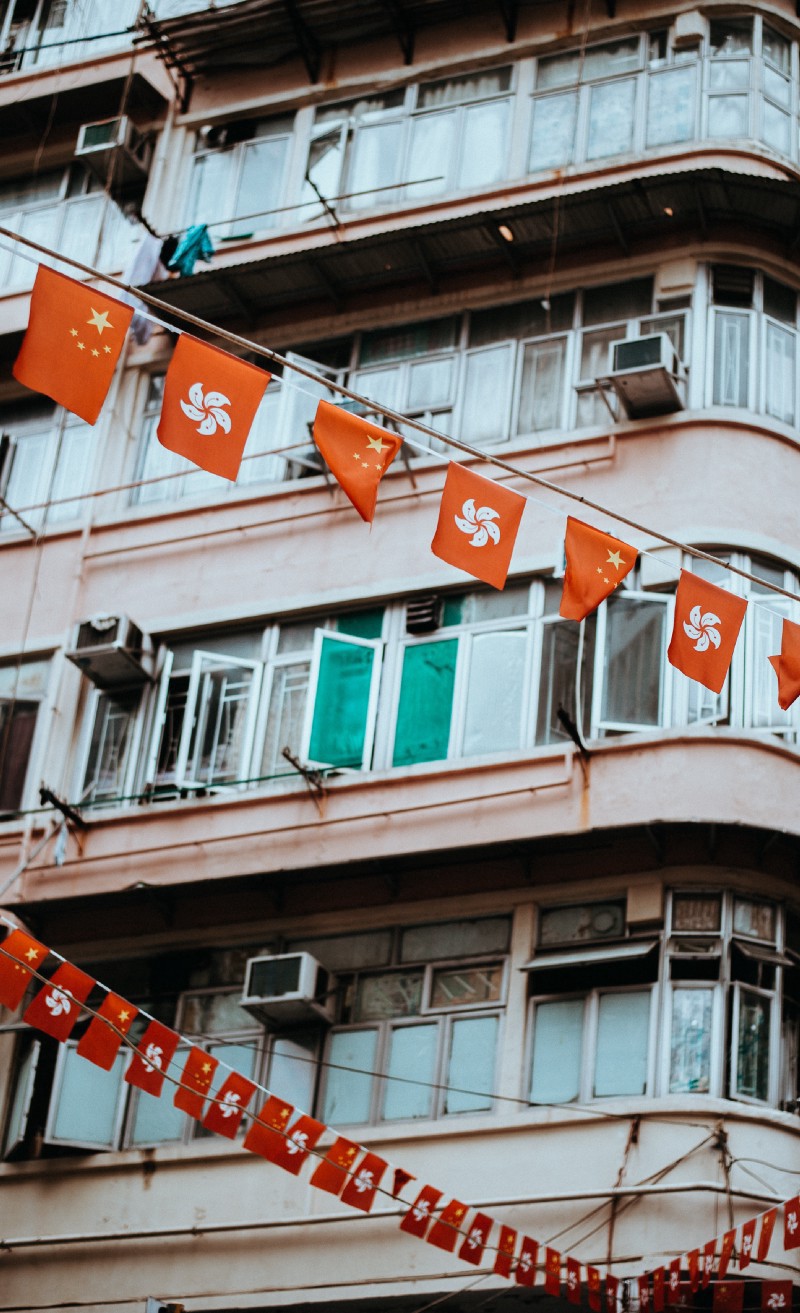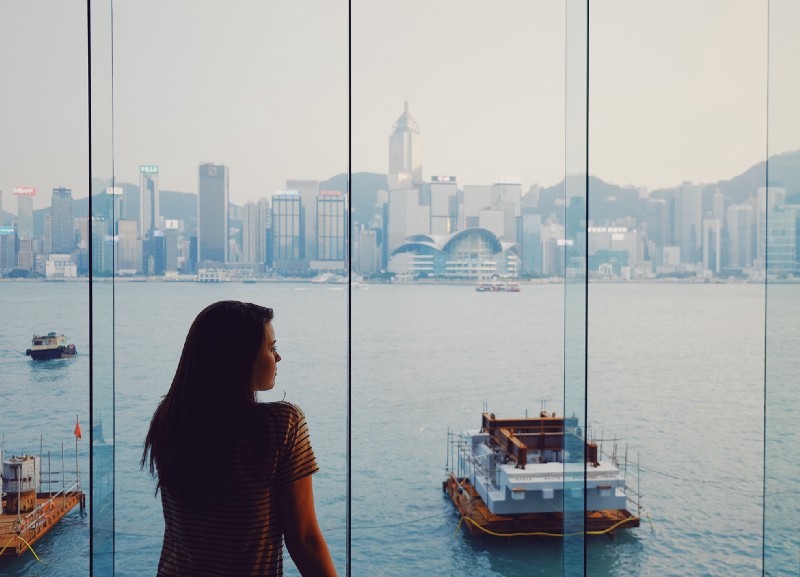
Hongkongers simply don’t identify themselves as Chinese.
In June 2019, tens of thousands of Hongkongers took to the streets in what was purported to be the largest public protest ever held in Hong Kong’s history. Their goal: to compel the city’s Chief Executive Carrie Lam to abort a proposed extradition law that would allow Hong Kong criminals to be tried in Mainland China.
To Hongkongers, this law is seen as yet another pro-China move from the Hong Kong government since the Special Autonomous Region was returned to China in 1997 after more than 100 years of British rule. As cross-border tensions rise, Hongkongers are showing greater resistance to China’s influence than ever before.
The protests in Hong Kong this month are an indicator that China’s “One Country, Two Systems” approach isn’t working. This is because the fundamental values of the two societies are incompatible.
The latest riots are a continuation of a grassroots crusade known as the “Umbrella Movement” — an anti-China political resistance that emerged in 2014 when Hongkongers organized sit-ins around the city center to demand more transparent elections for Hong Kong’s chief executive. During the demonstrations, which lasted for 79-days, the crowd used umbrellas as defense against the police squad’s pepper spray, and the umbrella become the symbol for Hong Kong democracy.

The term “Mainland” spelled with a capital “M” only really gained traction in the last decade, when after the handover, the semi-autonomous cities of Hong Kong and Macau doubled up their efforts to distinguish and separate themselves from the Communist-ruled citizens of the People’s Republic of China.
In a 2017 BBC interview, 20-year-old Hong Kong café barista, busker and freestyle footballer Chun-yin said, “I don’t have much sense of belonging to China. I love Hong Kong and feel like a Hongkonger. My generation just don’t have a good impression of China.”

When China’s former leader Deng Xiaoping formulated the “one country, two systems” constitution in the early 1980s in preparation for the British-China handover, he stipulated that the Special Autonomous regions of Hong Kong and Macau (the former a British colony, and the later a Portuguese colony) would keep their own government, education, legal, and economic systems, and that their way of life would remain unaltered for 50 years after Hong Kong’ return to China (till 2047).
But today, twelve years after the handover, Hongkongers feel like they’ve been duped, and many believe that their politicians are mere stooges of the Chinese government. The scale of the most recent protests made its impact, because Lam acquiesced and issued a “most sincere apology” to her people. Unfortunately for her, they weren’t satisfied, and proclaimed they would continue making noise until she steps down.
To those unfamiliar with Hong Kong, ethnic Chinese Hongkongers may appear phenotypically and culturally similar to Mainland Chinese, but having lived here for 10 years, I know this isn’t the case at all. At heart, the people of Hong Kong and China are poles apart in the way they think, and the values they embrace, so a happy political reconciliation seems an unlikely future scenario.
Multiculturalism Versus Intolerance

The Chinese ceded Hong Kong to the British in 1842 as part of a treaty to end the First Opium War. Since then, the colony flourished as a free trade port and commercial hub attracting people from all around the world. Though Hong Kong’s population is predominantly ethnic Chinese — approximately 92% as of 2019 — the remaining eight percent, which include Europeans, Indians, Nepalese, Filipinos, Americans, Africans, and people from many other nationalities, have always been welcomed and regarded as valuable citizens. Some of Hong Kong’s most influential pioneers — Parsee businessman Dorabjee Naorojee Mithaiwala who founded the Star Ferry, British-Indian businessman Catchick Paul Chater (who is of Armenian descent) who established property development group Hong Kong Land, Scotsman Alexander Findlay Smith who built The Peak tram, and British Banker Sir Thomas Sutherland who established the Hong Kong Shanghai Bank for example — were non-Chinese, testament to the city’s multicultural foundations. Besides its 17 Chinese temples, Hong Kong is home to 40 Christian churches, five mosques, and three synagogues, and all its different racial and religious communities are treated fairly and with respect.
China however, is not quite so hospitable to non-approved cultures and religions. In Mainland China, it’s against the law for Tibetan Buddhists and Catholics who are not members of the Chinese Patriotic Catholic Association to congregate for worship. Ideologies such as falun gong— a “system of mind-body cultivation” that includes meditation and qigong exercises — were banned within the country because the government was paranoid about the growing popularity of falun gong founder Li Hongzhi. There have even been reports that China has tortured, executed, and harvested the organs of falun gong members. The persecution of more than one million Muslim Uighurs in China has also been well documented, and the existence of of “thought transformation camps” in Xinjiang, western China, where millions of Uighurs are held against their wills and politically “re-educated” is worrying to people in Hong Kong and around the world.
Because of this wide ideological chasm with regards to equality and human rights, it is highly unlikely that Hongkongers will submit to China rule without a fight.
Open Versus Closed Economy

Hong Kong is a free market dependent on international trade, so good relations with other nations has always been a priority for its institutions and business people. This year, for the 25th year in a row, American think tank the Heritage Foundation ranked Hong Kong the world’s freest economy with a score of 90.2 out of 100 based on factors that include law, governance, market openness, and regulations. China came in at position 100 in the same poll.
Though in recent years, China has done a great deal to open its economy, a 2018 IMF study measuring trade and investment openness found that China was not only more restrictive than most developed economies, it was even more closed that average emerging economies.
Not only did China ban tech companies such as Google and Twitter and impose domestic restrictions on global players Facebook Inc, Apple Inc, Microsoft Corp, and Amazon.com Inc, it also practiced favoritism when it recruited four Chinese private sector tech firms — voice intelligence specialist iFlytek, along with homegrown tech giants Baidu, Alibaba, and Tencent — to become part of the country’s Artificial Intelligence “national team”. These tech giants now work closely with state-run initiatives, so by default, their massive sea of data becomes the asset of the Chinese government. By giving these four firms monopoly, the government ensures that they will thrive in the domestic market, so long as they continue to cooperate with state agendas.
In the long run, a greater Mainland influence in Hong Kong could mean the erosion of the very ethics that made the city the highly-attractive and prosperous global financial hub that it is.
Cosmopolitan Versus Provincial

In a BBC podcast, a young Hong Kong man speaks about seeing himself not as a Chinese but as a Hongkonger. “We’ve been separated for such a long time, our political system, education system, all aspects of democracy and freedom, Hong Kong and China have obvious differences, we’re like two different people,” he said. He goes on to explain in Cantonese — the local language of the city — that the behaviors of Hongkongers and Mainland Chinese are vastly different. “Hong Kong people are more polite, they follow the rules. Mainland Chinese tend not to follow the rules, tend not to queue, and talk really loudly. It’s not really about discriminating based on where they’re from, it’s because they’re behaviors are really different from ours, so we don’t want to be lumped together with them,” said the man who was not named.
“We’ve been separated for such a long time, our political system, education system, all aspects of democracy and freedom, Hong Kong and China have obvious differences, we’re like two different people.”
As a global center of commerce, Hong Kong has always opened its doors to foreigners, and most non-natives can easily obtain permanent residency if they’ve lived in Hong Kong for more than seven consecutive years. Decades of European and American influence have created a highly westernized society, and many Hongkongers, in particular those born after the 1960s, embrace western-style democracy and repudiate communism.
In the late 1980s and 90s, fears about the handover led to the largest wave of Hongkongers immigrating to Canada. After the transfer took place, life in Hong Kong seemed relatively calm and unchanged for some time. With their fears assuaged, those who left returned in a massive reserve-migration, and today there are an estimated 300,000, Hong Kong-born Canadians living in the city. The prolonged mixing of East and West in Hong Kong — through colonization, free trade, relaxed immigration policies, overseas education, and interracial marriage — has no doubt resulted in Hongkongers adopting more Westernized mannerisms. They also speak better English than Chinese from the Mainland, and are much more progressive in their thinking.
According to a worldadtlas.com ranking of countries with the most international travellers, Hong Kong is ranked as one of the top ten countries in the world with the most international travelers. Frequent international travel brings wider exposure to different world views, media, languages, art, music, literature, and cuisines, and has a way of improving a person’s social skills, manners, and elevating their aesthetic sensibilities. While Hong Kongers were connecting and learning from different cultures, less than 10 years ago, more than half of the population in the Mainland were were still living in rural farming villages and isolated from the rest of the world. As a result, Hongkongers are more culturally well-rounded than their Mainland cousins. Over the last 30 years, there’s no doubt that post-reform China has caught up economically and culturally. However, decades of austere communist rule has left a cultural void. In the eyes of the cosmopolitan Hongkonger, the Mainlander, who lacks urbanity and cross-cultural savvy, comes across as backward, uncouth or provincial, and this sometimes leads to challenging social interactions between the two.
Democracy Versus Censorship

When it comes to conceding to China, the biggest deal breaker for Hongkongers is the fact that China is unabashedly a surveillance state, where dissident voices are censored at the whim of Party leaders.
In late 2016, five book sellers — including a British and Swedish national — who dealt in scandalous books about the lives of China’s Communist Party leaders, mysterious “disappeared” from Hong Kong and showed up in mainland custody. Four of them later appeared on Chinese television delivering a scripted confession and apology for selling “unauthorized” books. After their internment, one of the five, a man named Lam Wee-kee, spoke up, revealing that he was kidnapped by a Mainland special task force at the border and subjected to eight months of psychological torture. This incensed Hongkongers, who saw the fiasco as a blatant abuse of power and the hand of Big Brother getting closer to home.
More recently, during the 30th anniversary of the Tiananmen Square student massacre, British journalist Stephen McDonell was in Hong Kong covering a massive candlelight vigil to mark the tragic deaths that took place in and around Tiananmen Square in Beijing in June 1989. Even now, the Chinese government continues to deny that the crackdown, which took the lives of between several hundred to thousands of Chinese, actually happened. McDonell shared photos of the Hong Kong vigil on his WeChat app — a catch-all Chinese social media tool that offers functions similar to Twitter, Facebook, Googlemaps, Tinder and Apple Pay — with his friends in China, who commented and asked what the gathering was all about. He replied cryptically and was immediately locked out of his WeChat. When he tried to log back in, another message appeared: “This WeChat account has been suspected of spreading malicious rumors and has been temporarily blocked…” The next day, McDonell tried to log in again, and when he did, WeChat (which is owned by Tencent, one of the four Chinese tech giants that are part of the Government’s AI “national team”) asked for his Faceprint and instructed him to “read numbers aloud in Mandarin Chinese” for security purposes. His voice and a photo of his face were recorded by the app before he received the message: “Approved”.
“Apart from being creepy you can only imagine the potential use of this type of data. In China, pretty much everyone has WeChat. I don’t know a single person without it. It’s is an incredible app. It’s convenient. It works. It’s fun. It was ahead of the game on the global stage and it has found its way into all corners of people’s existence. It could deliver to the Communist Party a life map of pretty much everybody in this country, citizens and foreigners alike,” says McDonell.

The majority of Hongkongers care deeply about truth, human rights, and freedom of speech and expression. Because these core values are so contrary to those of the People’s Republic, one can expect that Hong Kong will continue to raise its umbrellas, and do all it can to shield itself against the prospect of becoming an Orwellian state.
Pingback: Why Hong Kong’s Sociocultural DNA is Hugely Different from China’s — Confounding Conditions | Jean'sBistro2010's Blog